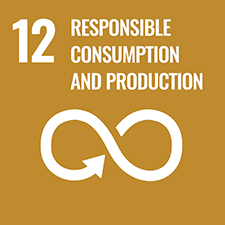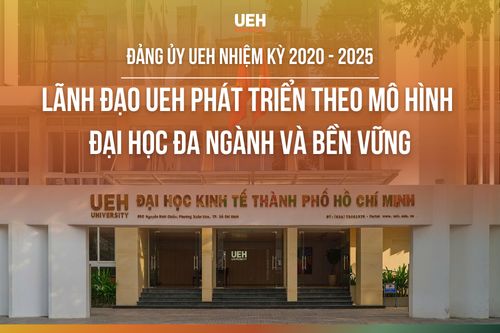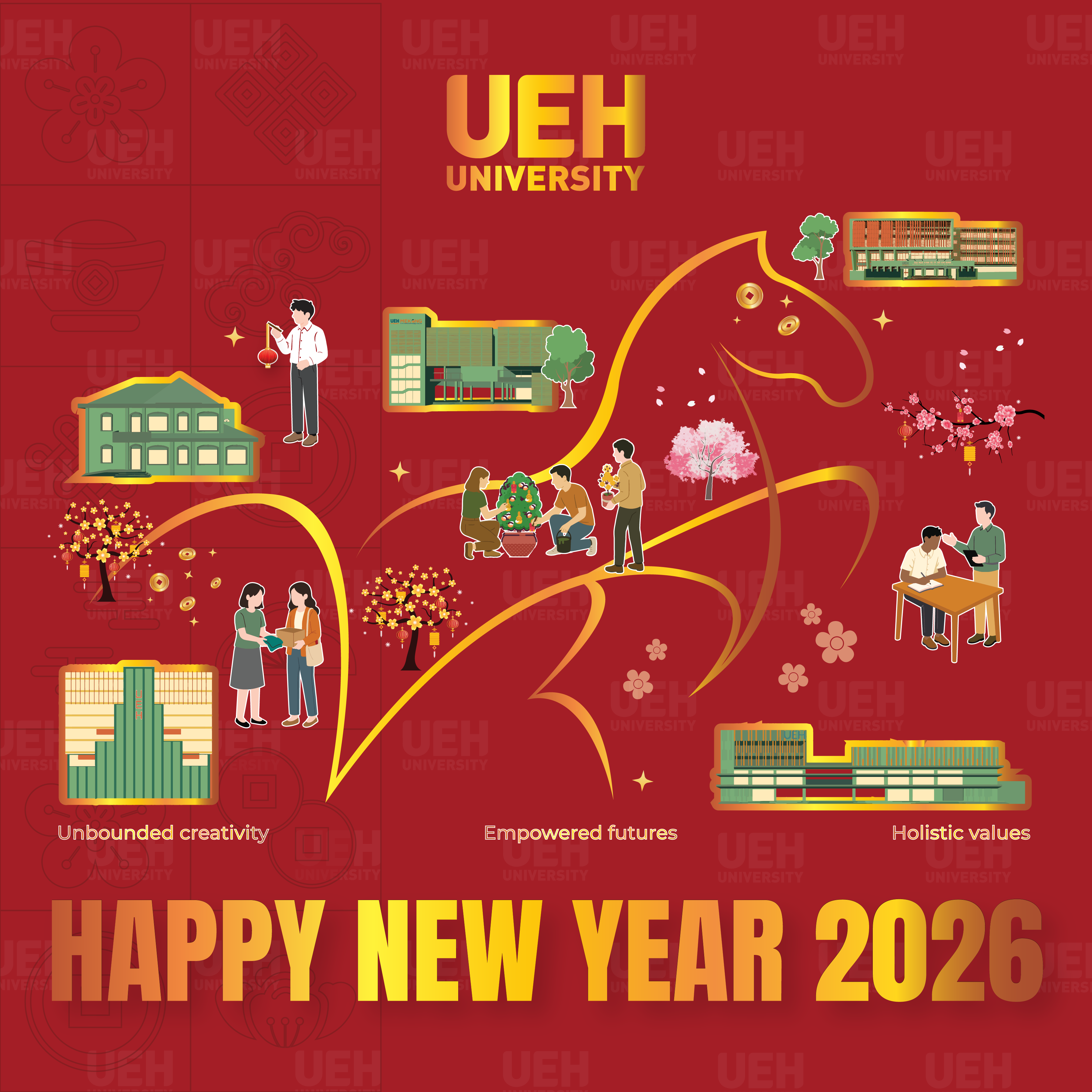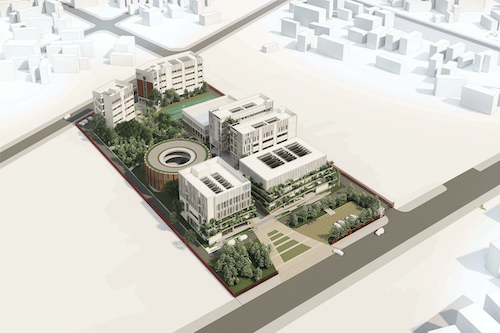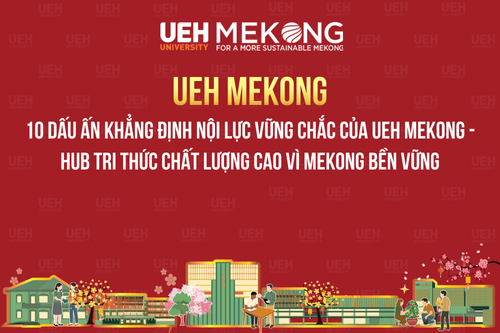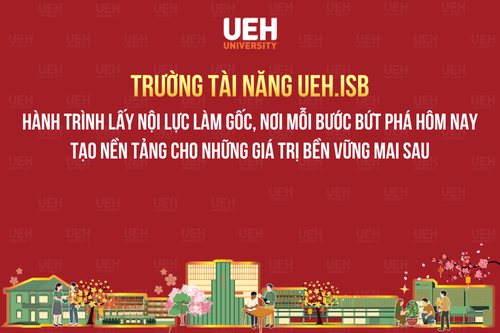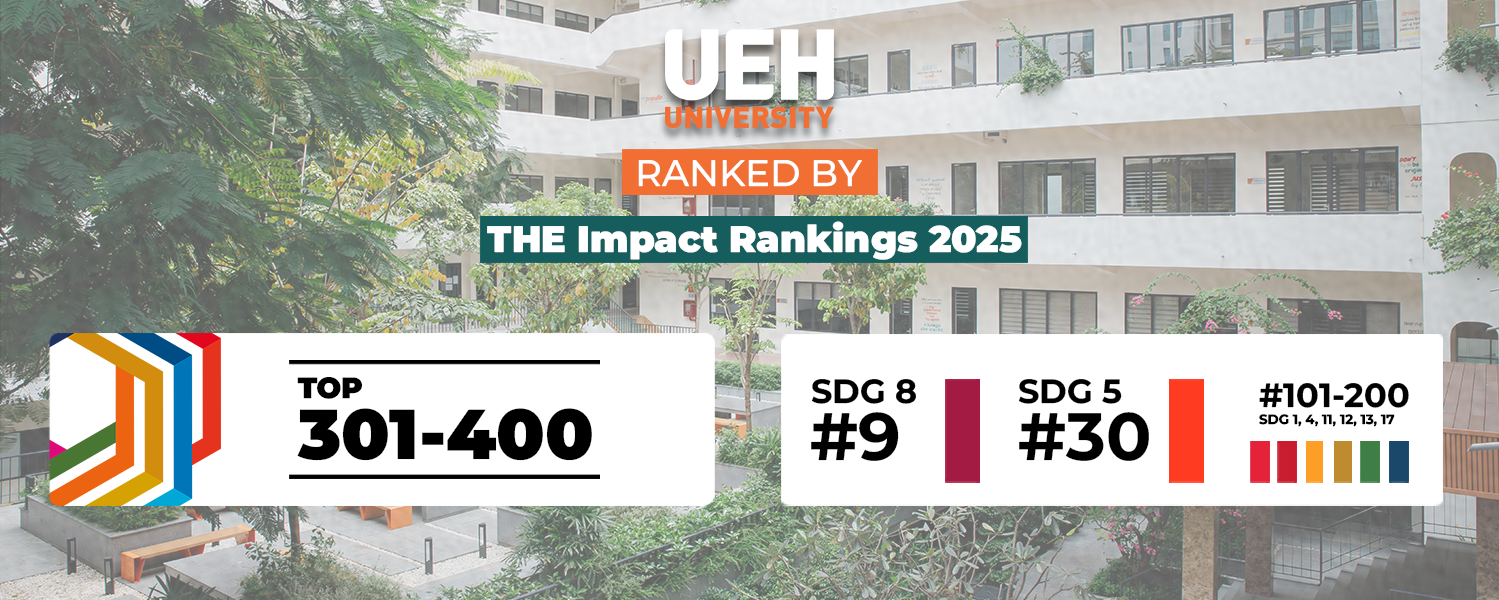
UEH continues to lead among Vietnamese universities: Ranked in the Top 301–400 global universities contributing to the 17 United Nations Sustainable Development Goals (SDGs), according to THE Impact Rankings 2025
19 Jun, 2025
Top 301-400 World-Leading Universities Contributing to the 17 UN Sustainable Development Goals
THE Impact Rankings is a renowned global evaluation system that assesses the contribution of universities worldwide to the 17 Sustainable Development Goals of the United Nations (17 SDGs), based on four factors: research, management, access, and integration of SDGs into university teaching activities.
According to the latest results, UEH continues to maintain its position in the Top 301-400 world-leading universities, leading Vietnamese universities.
Notably, UEH achieved Top 9 among world-leading universities contributing to SDG 8 (Decent Work and Economic Growth), Top 30 in SDG 5 (Gender Equality), and Top 100 in SDGs 1 (No Poverty), SDG 4 (Quality Education), SDG 11 (Sustainable Cities and Communities), SDG 12 (Responsible Consumption and Production), SDG 13 (Climate Action), and SDG 17 (Partnerships for the Goals).
Thus, through five years of implementing and operating the Multidisciplinary and Sustainable University Strategy, the persistent efforts of the UEH community have made meaningful, effective, and comprehensive contributions, achieving high rankings in 8 out of 17 SDGs, alongside efforts to implement the remaining goals.
According to THE Impact's scoring method, each SDG has its own evaluation index consisting of 3-6 criteria. Each university selects its three strongest SDGs for evaluation, along with the mandatory SDG 17. In the total score, SDG 17 accounts for 22%, and each self-selected SDG accounts for 26%. The final ranking score is the average of the two most recent years to ensure stability. With very high results in 8 out of 17 goals and a systematic Sustainable University Strategy, UEH promises to continue making its mark in the coming years.
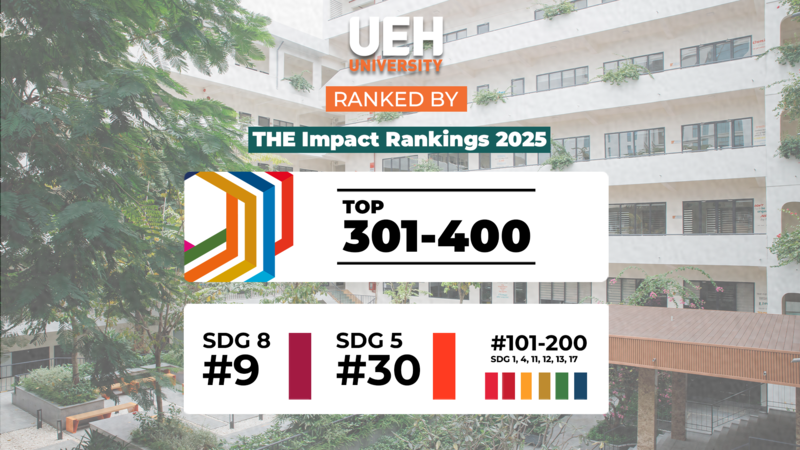
Affirming a Modern University Environment Creating Good Opportunities for Learners and Staff Development: Top 9 Universities for SDG 8 (Decent Work and Economic Growth) and Top 30 for SDG 5 (Gender Equality)
In this ranking, UEH achieved very high global rankings for the first time in two crucial goals regarding university environment: SDG 8 — Decent Work and Economic Growth and SDG 5 — Gender Equality, affirming a governance environment of stature, modernity, and transparency as the launching pad for all development milestones of UEH over the past nearly 50 years.
In practice, UEH has been and continues to be a typical case of development based on internal strength and modern governance models. Continuously listening to the market and "daring to change" to transform with strategies on governance autonomy, digital transformation, innovation, multidisciplinary development, and sustainable action are clear evidence.
The university's recruitment brand is well-positioned with advanced policies and tools such as: effective management through the OKRs (Objectives and Key Results) system; human development through policies for attracting, recruiting, training, developing, treating, and rewarding talent. Additionally, for many years, UEH has strived to develop an integrated, harmonious, equal university environment, creating comprehensive opportunities and efforts to empower learners to access the labor market and employment opportunities while still in school.
Particularly, the university advocates building an academic environment of integrity and transparency, continuously reviewing, proactively facing weaknesses directly, and being determined to continuously improve. Alongside academic research linked to prestigious international publications, the university's research policy focuses on contemporary topics, contributing to local, regional, national economic development and the 17 SDGs.
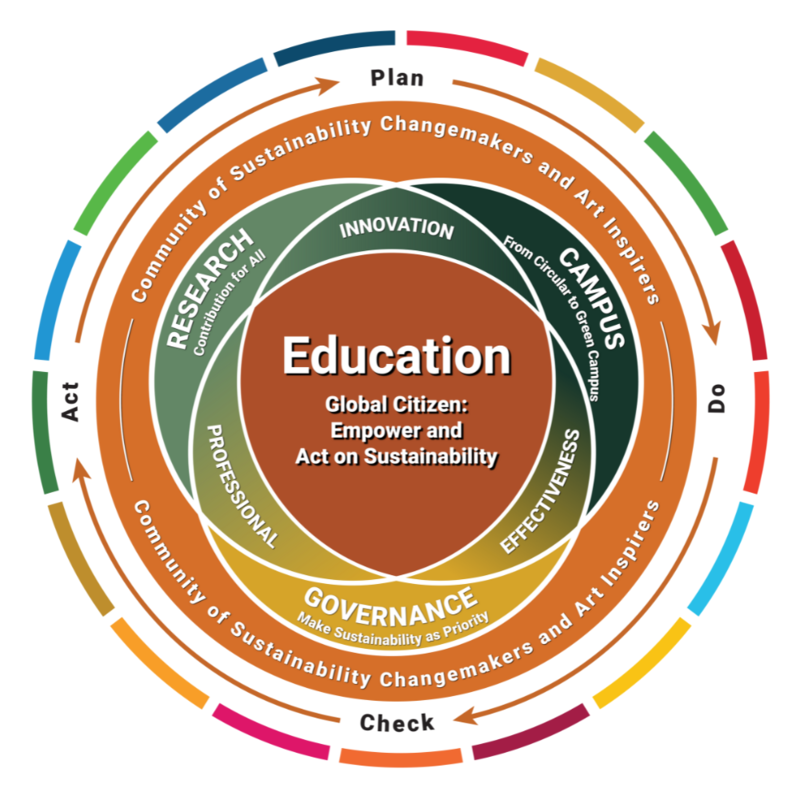
UEH's Sustainable University Model
A University Model Ready to Act for Community and Future: Top 100 Global Universities in SDG 17 and SDGs 1, 4, 11, 12, 13
In SDG 17 — Partnerships for Sustainable Development, UEH has risen more than 500 ranks compared to the previous year. This is reflected in efforts to expand multidimensional cooperation with domestic and international partners. UEH is oriented to develop into an accompanying, creative ecosystem; an innovation, academic, and sustainability center contributing to local development according to the Quintuple Helix model, connecting five key partner groups: Academia — Business — Society — Government — Natural Environment. With this philosophy, the university has successfully promoted interdisciplinary programs, organized dozens of international academic seminars and discussions annually, and implemented sustainable projects such as UEH Partnerships, UEH Giving, SEED, EU4Sustainability. Most recently, UEH has become one of four global universities operating the SDG 11 Hub (Sustainable Cities and Communities) under the United Nations Academic Impact (UNAI) network for the 2025-2027 term, with the role of Vice President in charge of Connection and Partnership.
Ranked in the Top 101-200 globally in many other SDGs, UEH demonstrates comprehensive sustainable development. In the fields of quality education (SDG 4) and no poverty (SDG 1), UEH has implemented a series of academic programs, encouraging community participation, providing financial support with thousands of students receiving scholarships through various scholarship policies: Learning Encouragement, Learning Support, Sponsored Scholarships, Emergency Support (nearly 5,000 scholarships corresponding to over 60 billion VND annually). Programs such as Volunteer Spring, Green Summer, Mekong Summer Camp, and Sustainable Career Guidance regularly organized by UEH have contributed to promoting lifelong learning spirit and creating opportunities for fair and comprehensive educational access for all subjects.
In the group of goals related to environment and sustainable urban development (SDG 11, 12, 13), UEH demonstrates a pioneering role in building green academic spaces, promoting responsible consumption, and taking action to minimize climate impact. The university has applied circular waste treatment processes with 8 tons of recyclable waste collected, sorted, and recycled into products with new life cycles. The "Towards No Single-use Plastic Future" campaign at the Vo Thi Sau campus helps eliminate single-use plastics while transforming the green campus into an art-inspiring campus with cultural and artistic activities linked to cultural preservation. Along with the national strategy on Climate Change, UEH aims to achieve Net Zero status by 2050. More information about the UEH Green Campus project here.
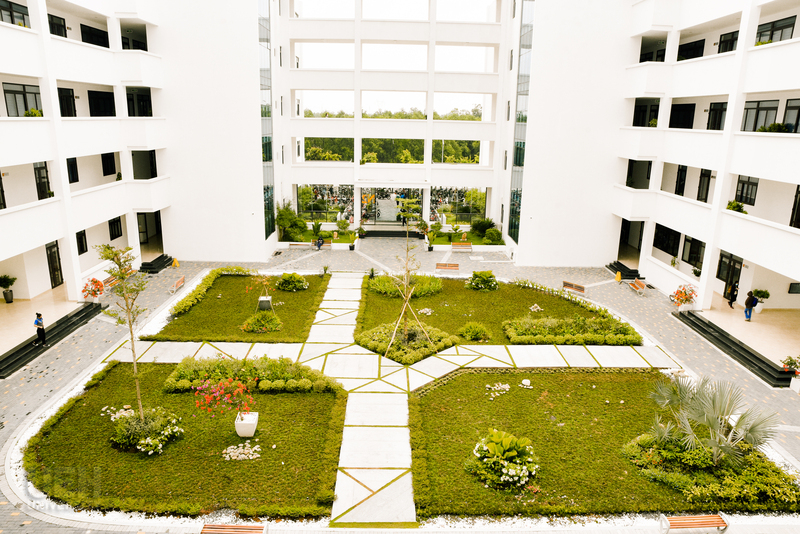
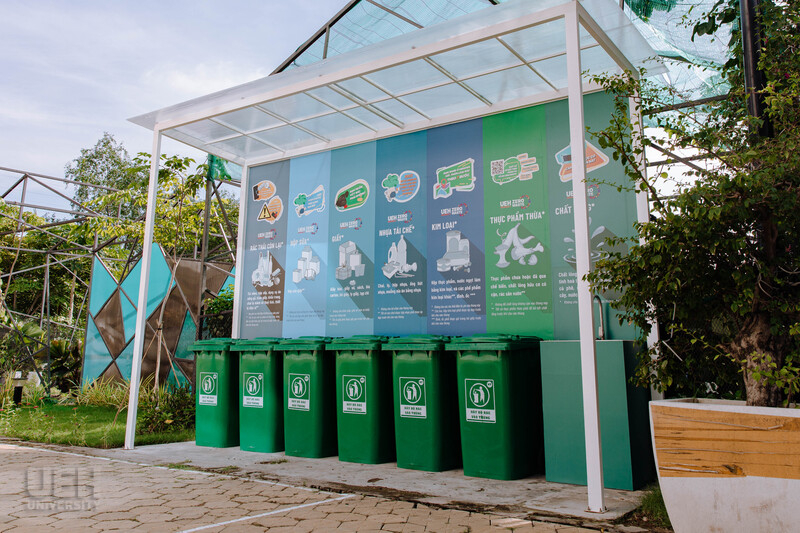
Green Campus and Go Green Station Model
Evidence-Based Ranking Management, Data Analysis, and Continuous Improvement
To maintain and develop the sustainable university strategy linked to internationalization, annually, UEH integrates the 17 SDGs into all university actions. Accordingly, the criteria of a Sustainable University from three related rankings including QS Sustainability, THE Impact, and UI Green Metrics have been consolidated by the university and systematically assigned to each unit's annual objectives (OKRs).
Each implementation action is monitored by the university, building transparent evidence sets, scientifically compiled and submitted to University Rankings. Each year, UEH dedicates time to deeply analyze ranking results and build specific action plans.
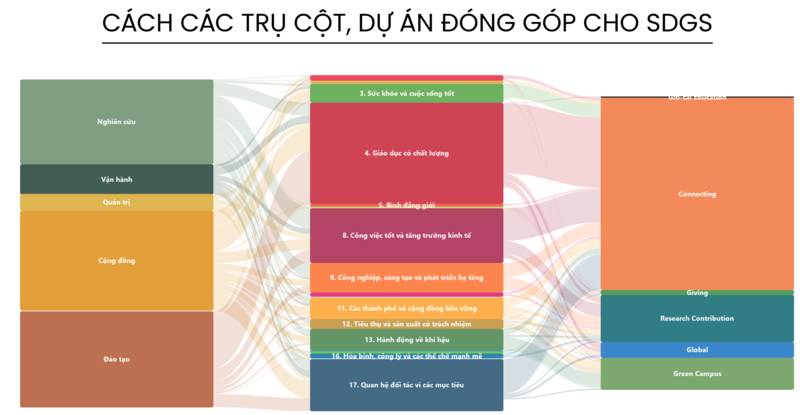
UEH Scientific Ranking Evidence Management System (View more)
"The outstanding results of UEH in THE Impact Rankings 2025 do not stop at the numbers on the Rankings; this is the result of a systematic sustainable development strategy, 'dare to think — dare to do,' evidence of UEH's innovation values, social responsibility, and comprehensive commitment to the community and environment. This is precisely the strategic direction that UEH has, is, and will pursue, step by step bringing Vietnamese higher education to contribute to the map of global universities" — Assoc. Prof. Dr. Bui Quang Hung, UEH Vice President shared.
Explore all of UEH's sustainable initiatives turning the 17 SDGs into reality here.
|
About UEH's Sustainable Development Strategy: UEH's sustainable development strategy is comprehensively implemented across five pillars: Training, Research, Operations, Governance, and Connect the Community. Specifically: Training: UEH maintains lifelong learning and Glo-cal training foundations through courses, short-term and long-term courses for different subjects to contribute to SDG 4 — Quality Education. Equipping learners with the ability to make wise, balanced, and comprehensive decisions. At the same time, the University also focuses on providing solid foundational knowledge about sustainable development as a mandatory subject for all majors, helping learners not only understand but also create positive changes for the environment and society, towards sustainable development. In recent years, the university has opened 13 new multidisciplinary training programs meeting modern trends and human resource needs for future generations such as: Technology and Innovation, Digital Communication and Multimedia Design, Accounting Integrated with International Professional Certificates, Financial Technology (Fintech), Marketing Technology (Martech), Digital Business, Robot and Artificial Intelligence Engineering (Robot & AI), Logistics Technology and Supply Chain Engineering (Logtech), Information Security, Information Technology, Computer Science, ArtTech, Intelligent Control and Automation. Nearly 100 extracurricular educational activities, competitions, discussions, and events with themes related to sustainable development, environmental protection, green technology, green economy, green university, circular economy, sustainable cities, etc., have taken place. Research: UEH has had over 500 research papers by faculty and staff and hundreds of student research papers related to green lifestyle themes, circular economy, etc., contributing to SDG 7 — Affordable and Clean Energy, SDG 12 — Responsible Consumption and Production, SDG 13 — Climate Action, SDG 14 — Life below Water. Governance: Implementing the consistent principle of "Democracy — Transparency — Fairness," all members at UEH are equal, guaranteed rights, regularly participating in decision-making, implementing policies, activities, and programs. Additionally, UEH integrates sustainable activities into school governance operations and builds green culture as a daily activity contributing to SDG 12 — Responsible Consumption and Production, SDG 15 — Life on Land, SDG 16 — Peace, Justice and Strong Institutions. Operations: In the process of operating the green campus with the UEH Green Campus project, to date, 8 tons of landfill waste have been reduced through the application of thorough source waste sorting models, contributing to increasing waste life cycles and responsible consumption according to SDGs 12 and 15. Connect the Community: UEH continuously connects with organizations and communities interested in the sustainability field to share and discuss solutions to environmental challenges, including the International Forum on Sustainability (IFS) contributing significantly to SDG 17 — Partnerships for the Goals. |
News and images: Sustainable University Project Board, Department of Communications and Partnerships, Department of Research, Development and Global Engagement


